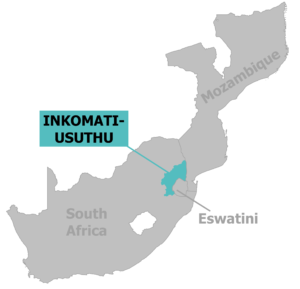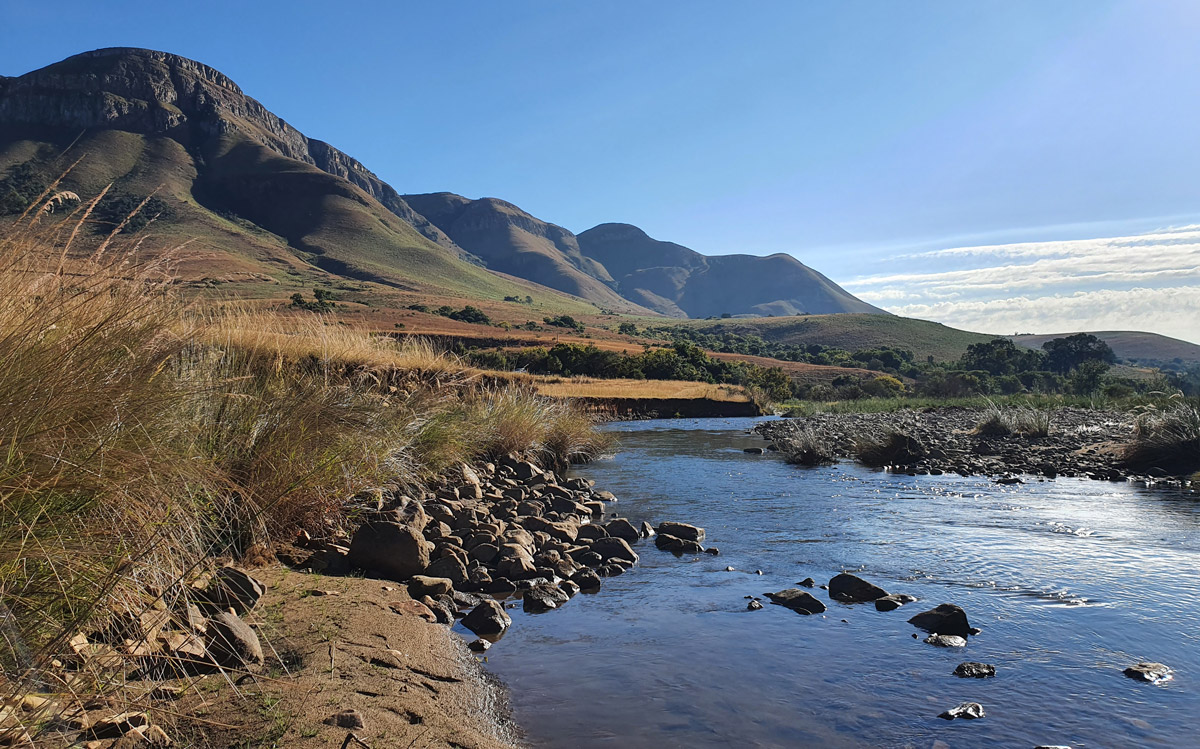Description: The Inkomati-Usuthu case study comprises the Inkomati-Usuthu Water Management Area, which in turn includes several parallel river catchments in South Africa and Swaziland (now known as Eswatini), which later converge to form the Inkomati river at the border with (or within) Mozambique and later flow into the Indian Ocean. The river basin is located downstream of mining activities and contains high potential agricultural land as well as conservation areas, including the southern portion of the Kruger National Park. Thus, the basin is vital to South Africa’s development, in particular relating to energy security (coal-fired power stations), food security (almost half of the country’s high potential agricultural land) and water security (numerous competing water users).

Main nexus issues: The main challenge relates to the close links between energy, food and water security.
- Coal mining, power production and agriculture in the basin are critical to ensure energy and food security, but jeopardize at the same time water quality and water availability;
- Climate change is likely to exacerbate resource sector challenges and threatens economic development, making it more difficult for the three neighbouring countries to meet sustainable development objectives;
- As the river expands over three differen countries, its management requires transboundary considerations;
- Furthermore, inequalities still exist in the South African society, and livelihoods (equal access to resources) must be incorporated into the nexus assessment.
NEXOGENESIS activities in the case study: Review and develop a summary of WEFE Nexus (and sector-specific) policies relevant to the IUCMA, with particular focus on water-related policy integration (or lack thereof) in terms of forestry, mining, conservation, tourism, irrigation, livelihoods, and transboundary considerations. This will lead to an assessment of how water-related policy can be streamlined into the nexus for the IUWMA.
